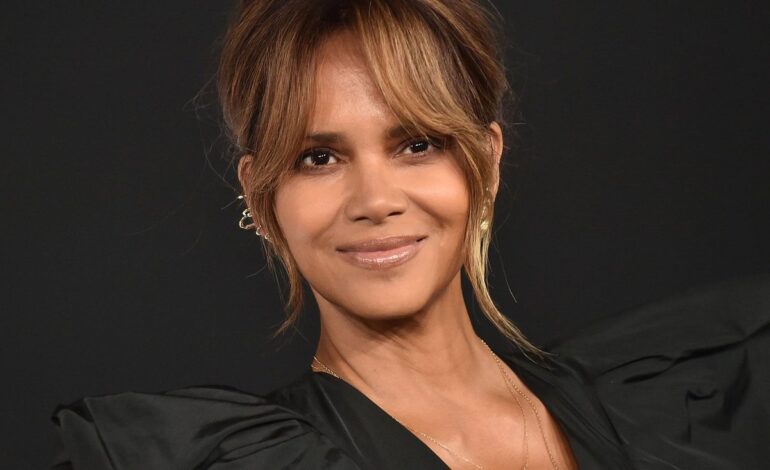David Justice Criticized for Calling Halle Berry “Not Maternal” and “Not Domestic”

Riley Carter here, and yes, I’m mildly invested. Okay, but like… why are we still grading exes on whether their former partner cooked and cleaned?
David Justice, the former Major League Baseball star who was married to Oscar winner Halle Berry from 1993 to 1997, is under fire after comments he made on the Matt Barnes podcast about why their marriage failed. Justice, 59, told Barnes that he expected a wife to handle household chores and to be “maternal,” saying that Berry “don’t cook, don’t clean, don’t really seem like motherly” while they were together. He framed those expectations as shaped by his upbringing in the Midwest and by watching his own mother, adding that his understanding of relationships was limited when he was young and that he had been in only one prior serious relationship.
Justice’s remarks quickly drew backlash on social platforms such as X, where users called the former Atlanta Braves player “sexist” and accused him of outdated gender assumptions. Multiple commenters pushed back that no modern partner should assume domestic duties fall solely to women and questioned why Justice was revisiting a decades-old marriage publicly. Those reactions echo broader cultural shifts: where once a comment about household roles might have been shrugged off, it now gets called out as regressive.
The timeline is straightforward and relevant to the debate. Justice and Berry met in May 1992, tied the knot in January 1993, separated in February 1996, and finalized their divorce in June 1997. In the podcast, Justice also said Berry proposed to him after only five months of dating and that he agreed even though he wasn’t sure his heart was fully in it. He said he didn’t want to say no and risk hurting her feelings. Justice later married Rebecca Villalobos and had three children; Berry’s post-Justice relationships included marriages to Eric Benét and Olivier Martinez, a long-term relationship with Gabriel Aubry that produced daughter Nahla in 2008, and a recent partnership with musician Van Hunt.
Justice used part of the interview to express resentment over how Berry handled allegations of abuse she made about an unnamed ex, suggesting the public might have assumed he was the subject and that he felt she didn’t clarify it was not him. That grievance landed poorly for some listeners, who noted the divorce occurred decades ago and questioned why he was airing grievances now rather than focusing on present life and family.
Context matters: Berry is an Academy Award–winning actress with a high-profile career and multiple long-term relationships since her split from Justice. Public reaction to his comments reflects contemporary expectations that conversations about marriage and gender roles should account for equality and choice. Many critics pointed out that domestic labor expectations are not fixed and vary across relationships, and that calling out a former spouse’s failure to fit a traditional mold feels both personal and politically tone-deaf.
This episode is part gossip, part cultural flashpoint. It’s easy to see why people reacted strongly—Justice’s framing reduces complex relationship dynamics to a checklist of chores and instincts, and doing that publicly invites scrutiny. Fans and social-media users debated whether Justice was honestly reflecting on youthful ignorance or doubling down on an old-school blueprint for marriage that most people now reject.
What to watch next: will Justice clarify or apologize, or will Berry respond at all? Expect more commentary and social-media hot takes, especially if the podcast clip gets replayed by influencers and news accounts. Either way, the conversation about gender roles in partnerships isn’t going anywhere soon.
Okay cool, so like, yeah, that happened.
Sources: Celebrity Storm and Matt Barnes “All the Smoke” podcast, New York Post
Attribution: Creative Commons Licensed




